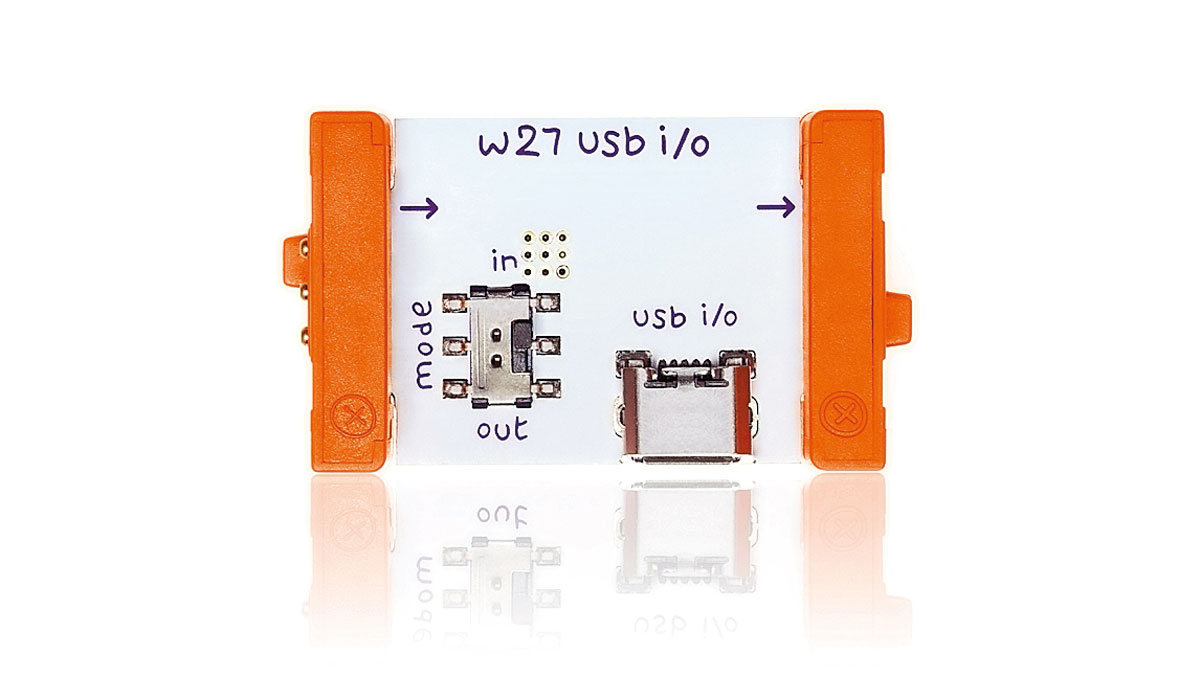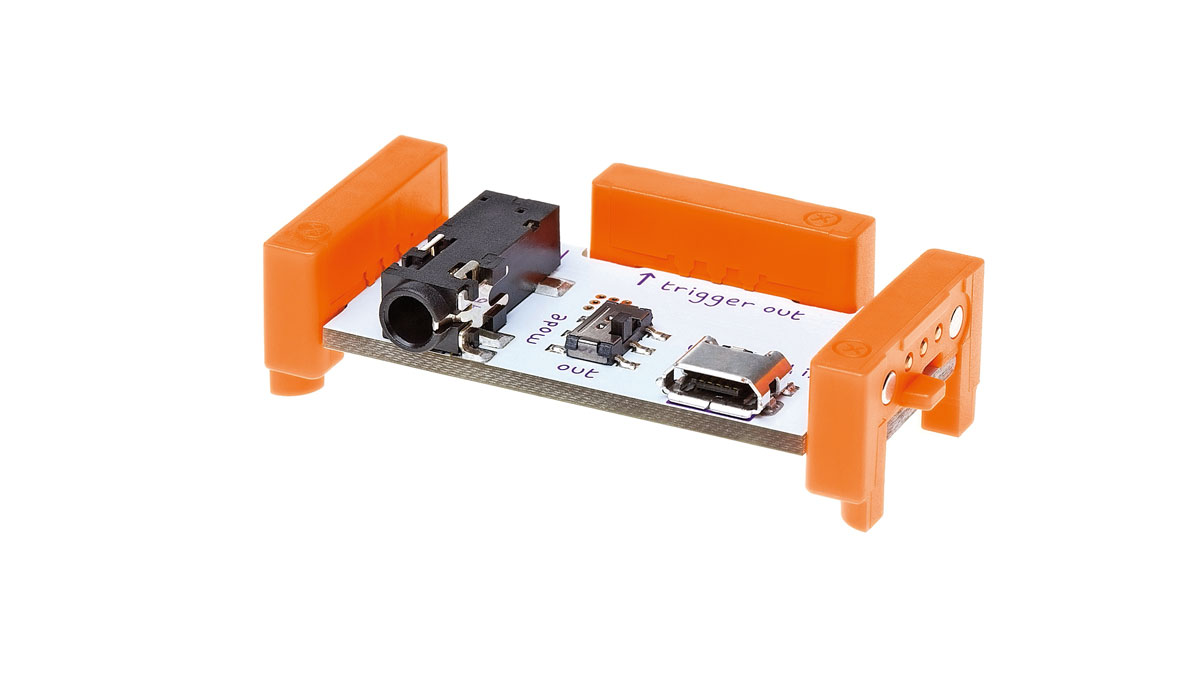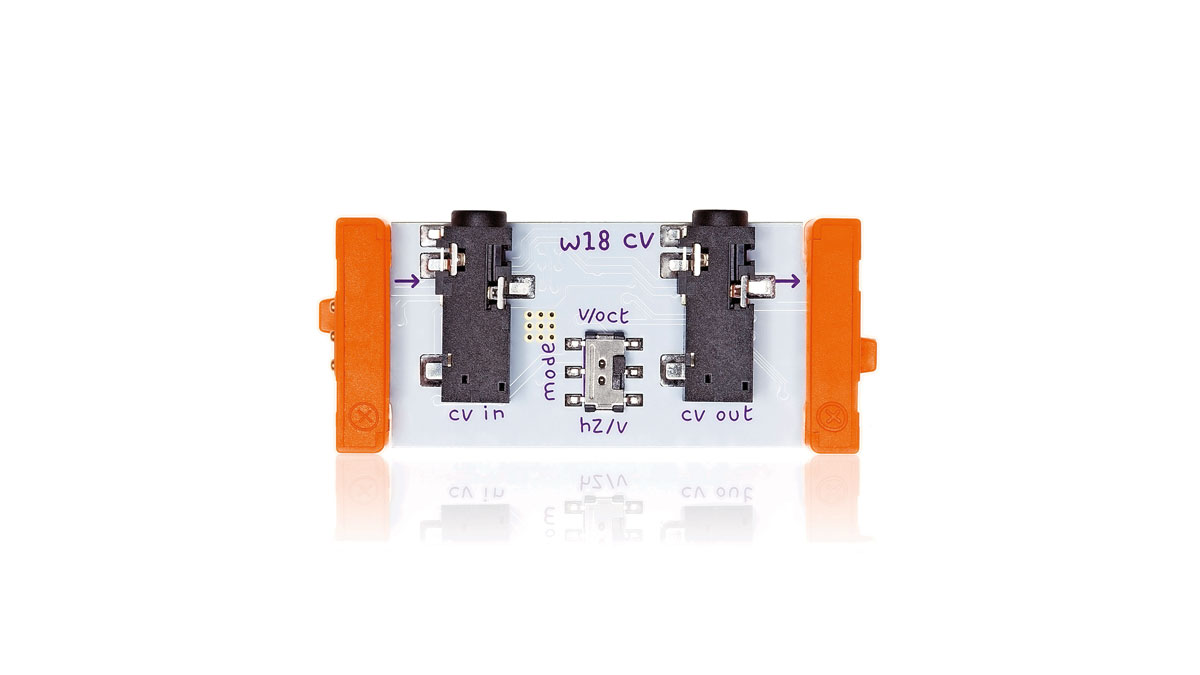MusicRadar Verdict
The new modules add a whole extra layer of creative potential to the Korg/littleBits set-up.
Pros
- +
MIDI and USB I/O allow the Synth Kit to be connected to a DAW. CV brings the littleBits kit into the modular world. Takes the Synth Kit further into 'pro' territory.
Cons
- -
May not be the best way for you to spend your money.
MusicRadar's got your back

Korg/littleBits Synth Pro Expansion Pack

littleBits 2

littleBits 3
Back in early 2014, creative electronics company littleBits teamed up with Korg to release the Synth Kit, a clip-together electronics kit built around analogue synthesizer components seemingly lifted from the Monotron and Volca ranges.
Featuring oscillators, a basic envelope, low-pass filter, noise generator, delay and more - all built in littleBits' education-friendly building blocks format - the kit bridged the gap between Lego-style construction toys and proper modular synthesis, creating a package that was accessible and a lot of fun, but also capable of some surprisingly impressive sonic results.
Now the pair of brands have teamed up once again to release a further range of audio-centric modules that push the capabilities of the kit deeper still into 'pro' territory.
"The littleBits concept is hugely fun and can be very inspiring, and these modules make the whole system more powerful than ever"
The Synth Pro expansion pack contains four modules - MIDI, USB I/O and two CV modules - along with a pair of mounting boards and cables, though the modules can also be purchased separately for around $35-$40 each.
The MIDI module is a bi-directional MIDI-CV converter, which comes with both standard MIDI and USB connectors. The former can only receive MIDI info, but the USB connection can both send and receive MIDI, although not at the same time, and is switched between the two states via a small In/ Out Mode selector. The module has two littleBits outputs, one main out and one trigger, and one littleBits input. The module has a note range of C2 to C6, and works at 1V/oct.
USB I/O, meanwhile, is a basic audio interface module allowing audio to be sent and received between a computer and littleBits kit over USB (again, it can only either send or receive at any one time, selectable by an In/Out switch). It can also send and receive CV, for hooking modules up to CV compatible programs like Max, and features single littleBits in and out connectors.
Finally, the CV module features separate mini-jack in and out connectors for hooking the kit up to analogue gear, along with littleBits in and out connections (plugging something into the CV jack input overrides the littleBits in). The module can be switched between V/oct and Hz/V modes via its small central switch.
Given the flexible nature of littleBits' snap-together system, the list of practical applications for these three modules is near enough endless.
At the most obvious level, it allows users to integrate their Synth Kit creations in with a DAW, by pumping MIDI in via USB at one end and USB audio out the other, perhaps using CV to sync an analogue synth or drum machine at the same time.
Once you start combining the littleBits modules with a modular or semi-modular set-up - be it hardware or a virtual set-up created with something like Max - things get really interesting; there's hours of fun to be had using the oscillators as modulation sources, processing sounds with the effects, and generally arranging and rearranging the modules to create unexpected results.
Mix and match
The Synth Pro bundle itself might not necessarily be the best way to spend your money, however - an alternative arrangement might suit your creative needs better. For instance, a pair of USB I/O modules will allow you to use the littleBits filter and delay modules as an external effects chain over USB.
It's worth exploring modules away from littleBits' audio-specific range too. We had a lot of fun using a pressure sensor and CV module to control the filter on my MS-20, and their light and bend sensors could be used for any number of control purposes too.
As with the original Synth Kit, littleBits modules can be a little fiddly in use, and tend to unclip from one another quite easily. These minor points aside though, the littleBits concept is hugely fun and can be very inspiring, and these new modules make the whole system more powerful than ever. If you own the original Synth Kit, you should definitely pick these up.
I'm the Managing Editor of Music Technology at MusicRadar and former Editor-in-Chief of Future Music, Computer Music and Electronic Musician. I've been messing around with music tech in various forms for over two decades. I've also spent the last 10 years forgetting how to play guitar. Find me in the chillout room at raves complaining that it's past my bedtime.
“A synthesizer that is both easy to use and fun to play whilst maintaining a decent degree of programming depth and flexibility”: PWM Mantis review
“I feel like that song had everything we needed to come back with”: Bring Me The Horizon’s Lee Malia on Shadow Moses, its riff and the secrets behind its tone, and why it was the right anthem at the right time
“I said, ‘Are we sure we can write a song about death?’”: The story of Mike + The Mechanics' classic No.1 The Living Years









